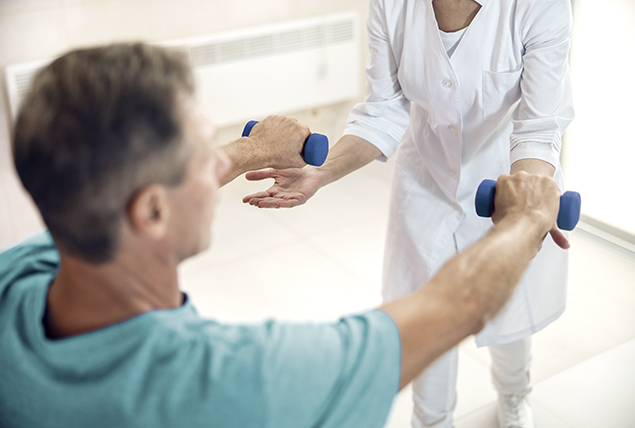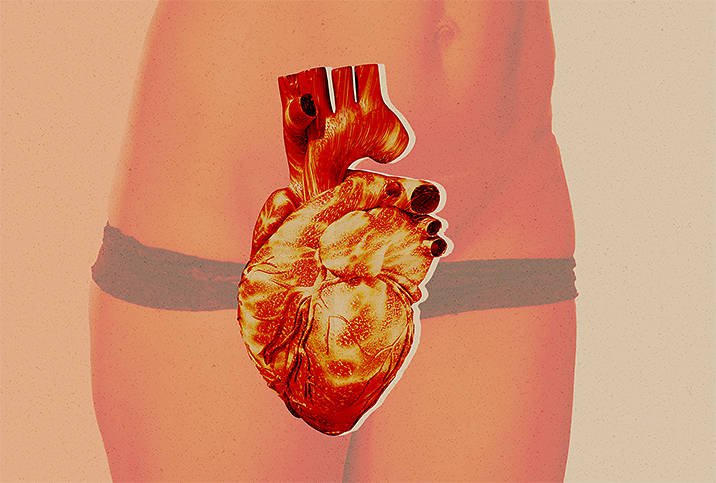How Quickly Can You Get Back to Sex After a Heart Attack?

Key Points
- Cardiac rehabilitation is designed to strengthen and heal the heart, reduce the risk of future complications, and improve overall health and well-being.
- Most cardiac patients can safely resume sex, and that's not inherently risky for the heart.
- You should be realistic about the pace of your recovery and adapt intimacy to fit your changing needs during the recovery process.
If you've experienced a heart attack or a blood clot or you live with arrhythmia—an irregular heartbeat—you'll know how scary the experience can be.
These heart conditions are known as cardiac events. Whether you've experienced a cardiac event or required a surgical procedure, your healthcare provider may refer you to a cardiac rehabilitation program in order to strengthen and heal your heart.
Cardiac rehab provides other health benefits, too, such as improved endurance, healthier habits and an increased overall energy level. According to the Centers for Disease Control and Prevention (CDC), it can help you renew sexual activity and intimate relationships, and address fears you may have about sex following a cardiac event.
A 2018 study suggested cardiac rehab can even have a positive effect on your sex life.
What is cardiac rehab?
Instead of sending you home following discharge from a cardiac event, many providers will have you attend an outpatient rehabilitation program upon leaving the hospital. This program helps strengthen your heart and reduces the chances of heart complications down the road.
"It's a supervised way to get people back into their normal life structure after a cardiac event," said Ernst von Schwarz M.D., Ph.D., a board-certified cardiologist and clinical professor of medicine at UCLA in California.
Cardiac rehab is typically completed over the course of three to six months in a group setting and includes exercise to improve heart health, education on items such as nutrition and smoking, and counseling to learn stress-management skills, according to the American Heart Association (AHA). There's also a sexual health component of the program to best learn how to approach sex after a cardiac event.
Should you be concerned about sex after a cardiac event?
Many people believe sexual activity can cause a cardiac event and often don't talk with their healthcare providers about sex, according to a 2020 study.
"Because of that life-changing event, whether that's open heart surgery or a heart attack, there's a lot of fear [about resuming sexual activity]," von Schwarz said.
He said patients leaving the hospital after treatment are often unsure if they can resume intimate relations. He cited providers not prioritizing this information even though most sexual activity requires the same amount of energy expenditure as climbing up two flights of stairs.
"That's a tiny amount of cardiac output, which usually doesn't require a significant elevation in blood pressure or heart rate," von Schwarz said. "It's not really a risky thing for the heart, but there's still fear. The only times we want to avoid sexual activity is if there's really an unstable condition. But most cardiac patients are not unstable."
Recommended
- Everyday Ways to Improve Heart Health: Proper nutrition and exercise are top priorities, but three additional methods can help, too.
- The Facts About Heart Health and ED: Erectile dysfunction could be a signal of serious heart issues. Here's what you need to know.
- Why Is There a Dark Spot on the Tip of My Penis?: Doctors discuss the causes of common penis skin changes.
The benefits of rehab and how it can boost sexual wellness
According to the CDC, cardiac rehab can help with the following:
- Easing the symptoms of heart issues such as pain and breathlessness
- Decreasing stress levels
- Improving mood and energy levels
- Improving overall health, including eating a more nutritious diet
- Preventing future heart health conditions
- Staying on your prescribed medications
- Strengthening the heart and body
"You might be feeling anxious about increasing your heart rate for fear of bringing on another heart attack," said Jenn Kennedy, Ph.D., L.M.F.T., the founder of the Pleasure Project and Riviera Therapy in Santa Barbara, California. "You might also be feeling more weak, tired, and potentially depressed after a cardiac event and all the care that came after it."
Cardiac rehab can help give you confidence by helping you improve your physical health and strengthening your heart. This can significantly improve sexual function, von Schwarz said.
Strategies to get you back to a healthy sex life
The AHA recommends most people wait a few weeks before they resume normal sexual activity during recovery from a heart attack—and only after they receive approval from their healthcare provider.
Here are four strategies to keep in mind as you're getting back to your usual level of sexual activity.
1. Take it slow
Your recovery time will vary depending on your situation and what your healthcare provider recommends. Remember, it's OK to take things slow at the beginning. A good rule of thumb is to assess how you feel based on your exertion, according to Kennedy.
"Can you easily talk while you are engaging in sexual play?" she said. "If you are not so breathless that talking is hard, you are likely in a safe zone."
Kennedy suggested starting with light touch or kissing and body contact that doesn't require much exertion. This can give you confidence in your heart's strength to progress to more sexual activity.
The Sexual Health Survival Kit for Women: Prepare yourself for all the twists and turns you may face in your sex life. Who knows when you may receive an appealing invitation from a sexual partner or when troubling symptoms could strike?
2. Consider your position
For the first month, limit sex positions that demand too much upper body strength or require the arms to be used for support, Kennedy said.
"However, if you have a chest incision from surgery, you don't want your partner putting any pressure on your chest," von Schwarz said. "Using a wedge pillow can help provide some support during sexual activity."
3. Involve your partner
Involve your partner in all discussions with your care team, including those that talk about the benefits and risks of sexual activity.
"Your partner likely has their own fears and can't read your mind," Kennedy said.
Talk with your partner about the physical and emotional changes you're experiencing, with the understanding these needs will change throughout your recovery process.
4. Be realistic
You and your partner must be realistic about what you can and can't do during the various stages of recovery.
"It can take some time to return to your normal level of activity," Kennedy said. "Patience and flexibility in how you express intimacy is going to serve you well. Ease into it and see what feels good."

















